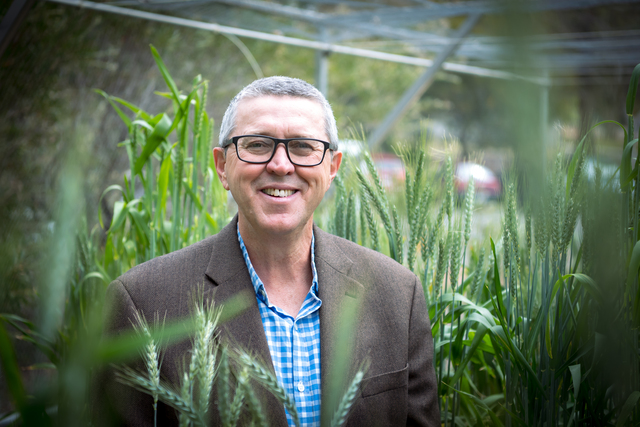Dr Rebetzke studied at the Gatton campus in the mid-1980s, a period he credits as essential in building his understanding of farmers’ needs. (UQ Gatton)
Dr Greg Repetzke has been awarded the 2024 Gatton Gold Medal for his exceptional career as a renowned agricultural scientist and for his contributions to global food security through improved crop production.
Dr Repetzke completed a Bachelor of Applied Science at The University of Queensland Gatton Campus and went on to earn a Master of Agricultural Science, which he pursued in the United States.
He currently leads a multidisciplinary team in Canberra, with his work focused on enhancing crop production and food security in drought and frost-prone areas.
Dr Rebetzke collaborates with breeding companies to fast-track the adoption of new genetic traits and cost-effective phenotyping methods.
His research has led to the development of elite wheat germplasm that significantly benefits the Australian grains industry, with an estimated annual value of $2.3–2.5 billion from improved water productivity.
Dr Rebetzke studied at the Gatton campus in the mid-1980s, a period he credits as essential in building his understanding of farmers’ needs.
“My time in Gatton gave me a deep understanding of the industry, and that yes, you can learn a lot from books, you can learn a lot by going to conferences, but there’s something special in being able to go and talk directly and listen to farmers,” he said.
“You learn from farmers, and it was that Gatton training that encouraged me and encouraged my students to get out there and do it.
“Farmers told me as a young CSIRO postdoc that the drought tolerance work was important, but what we really want is something that we can plant deeper.”
Growing up in suburban Brisbane, Dr Rebetzke said he found his time at Gatton College to be an eye-opener to both the joys and challenges of Australian rural life and the agricultural business.
“It’s important we understand our rural communities really are, I think, the foundation of food for Australia, but also globally,” Dr Rebetzke said.
“And we just need to acknowledge and regard the challenges now and in the future of ensuring continued and reliable food production and security.”
Dr Rebetzke’s long-standing connection and commitment to improving grower resilience is delivering new genes and varieties for future climates, and his close industry connections have made his research highly impactful globally.
Images are for reference only.Images and contents gathered automatic from google or 3rd party sources.All rights on the images and contents are with their original owners.



